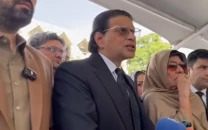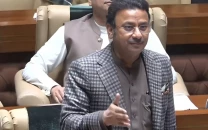Scotland votes
Scotland has had its experiments with independent rule before

Scotland votes
“They joke that the night before the referendum, TV channels will show Braveheart,” he told me with a smile. I laughed and asked if that could change the outcome of the polls. He snorted, “Anyone who thinks those voting in favour of independence need a movie to motivate them is a fool.” He believed that Scotland had been waiting for this moment in its history for a very long time and that it was too precious to Scots as a nation to lose.
Scotland has had its experiments with independent rule before. The results of Scottish referendum of 1979 and the Scottish devolution referendum of 1997 have both been interpreted in multiple ways. Some believe that they were victories for the “national conversation” — a debate in Scotland itself about the next step in its struggle for independence.
This debate was everywhere in Scotland. I saw stickers on cars simply saying ‘vote yes’. Graffiti on benches and street corners called out, “Say no to London rule!”
Abdul Majid, a Pakistani grocery store owner, told me he would be voting to stay with the United Kingdom. He pointed to a pamphlet lying in his store. It was labelled, “What staying in the UK means for you.” Queen Elizabeth’s portrait was on the top left corner. It was a 10-page document highlighting economic benefits that would be lost once Scotland became a free country. It reminded the reader that a yes would mean an exit from the European Union. It painted horror scenarios about the question of currency; would Scotland have an independent Scottish currency, join the euro, or retain the pound sterling? The document suggested that retaining the pound was not an option. It would require underwriting Scottish debt.
A Scottish salesman at a local produce store was the most objective. “There will be many who will vote no. But they won’t be enough.” He believed that the Scottish National Party had run a powerful campaign in support of independence. While he believed that the majority would vote yes, he held them in disdain.
“The voters will be a group of young children with no sense of politics. How can a 16-year-old make an educated decision on a referendum of this nature?” He said they would be very disappointed if Scotland said no. He then told me the joke about Braveheart on TV the night before the referendum.
Published in The Express Tribune, September 18th, 2014.



















COMMENTS
Comments are moderated and generally will be posted if they are on-topic and not abusive.
For more information, please see our Comments FAQ